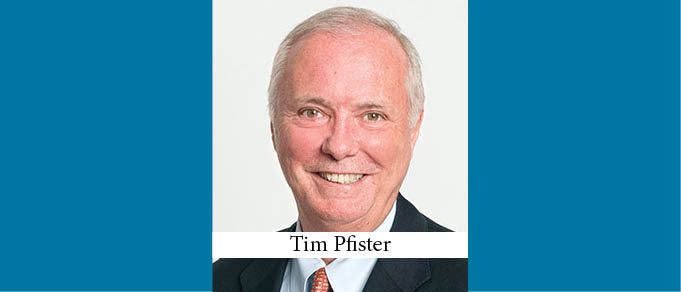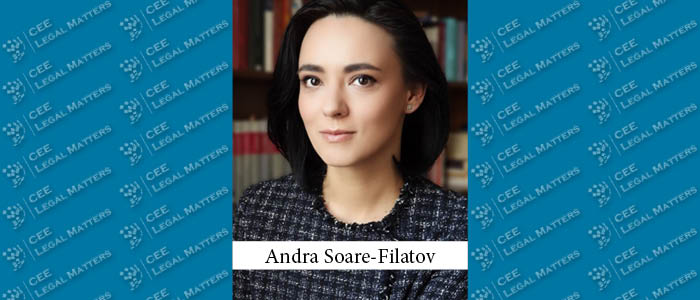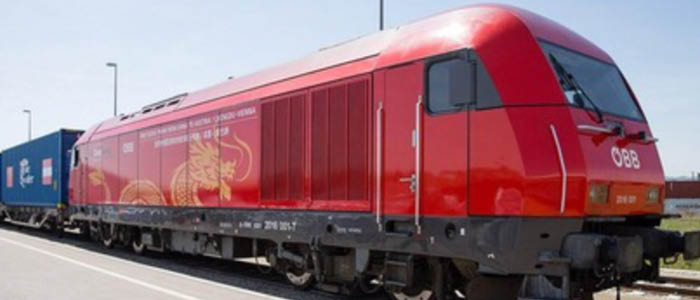Tim Pfister, Managing Partner at Knoetzl in Vienna, is an American lawyer with over 35 years of experience. In addition to his management responsibilities at Knoetzl, Pfister acts as counsel, advising clients and colleagues on New York law matters and regarding conflicts in international transactions, cross-border financings, the Foreign Corrupt Practices Act, corporate crisis management, and corporate strategic planning. He moved to Austria in 2013 and was a founder of Knoetzl in 2016.
CEELM: Run us through your background, and how you ended up in your current role with Knoetzl.
T.P.: The most relevant part of my background needed to answer your question is the personal part. My Austrian wife of three years and I had been commuting between New York, where I lived, and Vienna, where she does, for several years (with intermediate stops in places like Vancouver, Hong Kong, Singapore, London, Buenos Aires, Dublin, Amsterdam, San Francisco, Tokyo, Chicago, Frankfurt, Key West, Madrid, etc., along the way) to see each other. Then, about five years ago, I suggested we flip a coin to see how we could shorten the commute. The U.S. quarter was tossed, and it came up “Vienna.” So, here I am. Fairly simple, if not conventional.
My professional background is, in retrospect, conversely quite varied and complex – through neither previous-times expectation nor intentional design. That simply happens with the passage of decades when one is blessed with great intellectual curiosity and good health, and has serial great opportunities to practice international transactional law at an elite level, mostly in New York. So, because I’m afraid the background book is so long, it is practically impossible to encapsulate it here without curing all tendencies toward insomnia among your readers.
I am, by tradition and choice, a transactional lawyer who has been, over time, urged, wheedled, and cajoled by law firms to – mostly reluctantly – supplement my complex deals and corporate counseling habits by assuming a variety of firm management roles, while continuing to generate revenue. It is that latter trend that paved the way for my joining with the founders of Knoetzl, a talented and experienced group of intellectually distinguished lawyers who eschew complacency, are driven to disregard local market limitations in their practice, and measure themselves against the global elites, many of whom engage our firm as co-counsel and contributors to their major publications. The founders’ attraction for me, at the time the firm was formed a few years ago, was refreshingly magnetic, as I deeply admire the way my partners here constantly seek to raise the bar in delivering higher-quality legal representation of Austrian and international clients whose important disputes require the most exacting level of analysis and attention. So, with my long background in BigLaw practice and management, my penchant for effective legal analysis, borne in decades’ of Wall Street structured transactions, this firm’s drive and ability to do better for its clients in its market than has been done before, the lure of the challenge of guiding clients through crises – and since I was already here anyway – the fit was perfect.
CEELM: Was it always your goal to work abroad?
T.P.: I never really had a “goal” of working abroad, but I also never had any aversion to the idea. In fact, over the course of my many years of international law practice, much of my focus has been outside of my native United States. I have also lived outside the U.S. from time to time, including for almost a year in Brussels, where I planted my large American law firm’s first (of what later multiplied into many) non-U.S. flags. Since many of the complex, structured financings and mergers and acquisitions deals I have serviced require – at a minimum – fitting systems (particularly legal systems and laws – but, also, cultures) together for the sake of the transactions – especially when such systems are not designed to fit together, I have always been required to “think abroad,” even if not eating and sleeping there. I enjoy what I do – and the people with whom I do it. It is fundamental in my legal analyses to understand the applicable law’s cultural and local-political underpinnings in order to dissect, work with, and sometimes refine or even help rebuild, the laws, rules and regulations that affect my multinational clients’ financial deals and businesses. Spending time away from the myopia of Wall Street, and being with an elite Austrian firm whose laser-like focus is on disputes now helps me reverse-engineer what went wrong with a deal in dispute. As a general matter, only transactions run in New York and London’s City practices can afford the enormous costs required to ensure that the lawyers can perform pervasively thorough analysis and structuring and – with critical support from top local counsel – get every aspect right.
CEELM: Tell us briefly about your practice, and how you built it up over the years.
T.P.: I have been fortunate to have started my large-firm practice at a time that had different rules and circumstances than today, and at a firm that was among the bluest of the blue chip firms on Wall Street. That meant, essentially, two critical things in terms of my own practice. First, I was surrounded by and able to learn from lawyers I came to enduringly regard as “Blow-You-Away Smart.” Being able to learn from the very best in the world, over many years, and during more working hours than any of my rational Austrian friends would care to imagine (with the conspicuous exception of my current firm’s senior, founding partner, whose legendary passion for winning her clients’ legal disputes drives her to remarkable hours, stunning successes, and associated happiness for herself and her clients), gave me a thirst for legal knowledge and analytical understanding – and a ready means to quench it.
Secondly, my firm was in the historically enviable position of actively discouraging its young partners from business development, as “your most important development tool is doing the work on your desk, flawlessly.” As time passed and responsibilities grew, I found myself in a position of being sought after by investment house, banking, pharmaceutical and industrial clients to run their deals and to counsel them in times of crisis. In those crises that would occasionally come along (including two which, at the time, were characterized by the press as threatening the collapse of Wall Street; they didn’t), I learned to work closely with tough and impressive litigators, and the type of dedicated and talented disputes lawyers with which I am, again, happily and comfortably surrounded at Knoetzl.
Over time, my energy finance deals (like the conversion of a completed, but mothballed, nuclear power plant which had been built on a geological fault into a 1278mw natural gas-fired cogeneration plant) begat more energy (and desalination) finance deals from upstream to downstream, utilizing every fossil and sustainable fuel source – and, on every continent.
ESOP-driven acquisitions (like a global rental car organization – later referred to by the legal press as “the Deal of the Decade in the Decade of Deals”) gave rise to structured re-financings of some of the world’s biggest corporations. U.S.-Canadian, double-dip financed roll-ups of what became, through the process, the second-largest global contract manufacturer of telecoms equipment, led to joint ventures in China, IPOs in Canada and, later, in New York and, even later, to the multi-billion-dollar sale of the enterprise itself, to that client’s largest competitor. The restructuring, refinancing and subsequent privatization of the largest airport in Poland was followed by airport finance work in Brazil, Washington, DC, the UK and the Middle East.
Handling large-ticket legal work (co-development, co-branding, acquisitions, and spin-offs) for a famous Swedish-Swiss pharmaceutical company instigated a mandate to assist in the ultimate sale of that business (after spinning off a globally-renowned agro-biotech subsidiary) to one of the world’s largest pharmaceuticals, and to the representation the buyer of the largest publicly-traded U.S. health care operation taken over by a larger, German, life sciences company. Restructuring an early U.S.- Russian joint venture arising out of a dispute over the world’s biggest coal strip mine operation provided my practice with assignments from various corners of the CIS and CEE.
Throughout, and almost since the inception of the Foreign Corrupt Practices Act during the Carter Administration, I have been called on to advise American and international companies on the Act and related laws and agencies (CFIUS, the UK Anti-Bribery Act, OFAC, etc.) regarding their structures, global sales operations, government relations, investigations, and compliance.
CEELM: How exactly did you end up at Knoetzl?
T.P.: The firm founders put everything together at breakneck speed once they withdrew from their previous law partnerships a few years ago. I was consulted in the early moments of the founding, and was still resident in New York during the mere hours between the founders’ respective withdrawals and their cutting the ribbon on the then-new firm. I had known the founders quite well – and many corporate and banking lawyers from one of their legacy firms – for a long time. I hired that firm and many of its partners to act as local counsel, for years, on deals with an Austrian element. I was also present at the IBA in Tokyo in 2014 when the senior Knoetzl founder, then a major (20+ years) partner at that firm, was told, without solicitation, in very clear terms by a famous lawyer (recently retired from a long career in the Magic Circle, and at the time the head of the preeminent law society in Great Britain) that her individual “brand” was considerably larger on a global scale than was that of her firm (which was, at that time, the largest in the region). I had no doubt that he was spot on in his observation. So, much later, when I was asked to help elevate Knoetzl to their targeted higher standards, I wasted no time in rolling up my sleeves.
CEELM: What do your clients appreciate most about you?
T.P.: This is an interesting question. Although I am fairly confident that they generally enjoy my company personally, as one can generally tell from after-hours gatherings, I have fewer reasons to know what, specifically, clients appreciate in a way that is distinct from their appreciation of other lawyers. Of course, they like results. Nevertheless, two statements made by clients come to mind. The CEO of a global consulting firm once said that, although technical, flawless, legal skills are expected from the senior lawyers to whom he pays very high hourly fees, he liked to engage my team, also, for my business acumen – an understanding of the commercial and financial drivers of his firm’s legal matters.
When I train young lawyers, I often admonish them that we are charged with knowing more about a client’s deal, or business, or dispute, than the client itself knows. Only then do we earn our keep and help them prevail.
Another client, the general counsel of a large financial services organization for whom we were celebrating a massive, multi-continental transaction in Hong Kong, was asked by the business woman in charge of the deal what it is that makes him (the GC) say that my firm at the time was the best group of lawyers he knows – as she confessed to not knowing enough about distinguishing between legal services providers. His response was telling. Although himself a highly credentialed and accomplished lawyer, he said that “I have known Tim and [my partner back in New York to whom we turned for help in the middle of his night whenever we got stuck during the previous two weeks of negotiating with over 20 parties] for a long time and, human nature being what it is, I’m sure that I’ve asked a lot of stupid questions. Yet, neither of them has ever made me feel that way. Instead, they always look behind the question to see what is really bothering me, without regard to how the concern was phrased, and they work through the resolution of whatever was really troubling me.”
CEELM: Do you find Austrian clients enthusiastic about working with foreign lawyers, or – all things considered – do they prefer working with local lawyers?
T.P.: Again, this is difficult to know. My direct client dealings are, in the lion’s share, with international clients of Knoetzl. I have not sensed a hesitation on the part of Austrian clients to deal with a helpful “Auslander.” But, my sample size is too limited to enable me to truly know. One interesting aspect of this, however, is that it is quite clear that more sophisticated Austrian clients are coming to understand that they can enjoy a considerable advantage in their disputes arising out of agreements when they are represented by specialist disputes lawyers, rather than by the same general or corporate lawyers they may have used in all their matters – including those who put the disputed deal together.
CEELM: There are obviously many differences between the Austrian and American judicial systems and legal markets. What idiosyncrasies or differences stand out the most?
T.P.: Two areas of difference jump out. One, as Knoetzl is a disputes firm, and I fancy myself to be something of a student of the systemic differences, I have come to understand and appreciate the fundamental distinguishing aspects between Anglo-American common law systems that permit pretrial discovery, and the Austrian civil law system where discovery (in civil cases) is mostly prohibited, allowing the matter to go to trial much sooner. Furthermore, Austrian judges rely heavily on court experts, a system that is unknown in American courts, where only judges and juries determine the factual aspects of the matter. These approaches and their differences cannot be overstated, and would be the subject of a whole, different article or tome. Having studied the vast dissimilarities in these approaches, I cannot conclude which is better. Each has big advantages, and each has big, consequential failings.
The second, and unrelated, difference that comes to mind is how Austrian legislators seem to be far less interested in promoting or enabling business interests or entrepreneurship [than many other countries], and, conversely, are driven by different social-engineering goals than are governments that actively promote such interests in their countries.
CEELM: How about the cultures? What differences strike you as most resonant and significant?
T.P.: I think the most resonant cultural difference between Austria and the U.S. is reflected in the last half of my response to legal systems differences above. The government in Austria – irrespective of which color or combination of colors is in charge – seems to set a tone that lowers the ceiling for businesses, instead promoting more mediocre jobs that, individually, are considerably more expensive for companies to provide than are higher quality, but fewer, entrepreneurial jobs and career-and-market-growth opportunities that are encouraged elsewhere. The result is a seemingly intentional dampening-down of business drive or ambition.
This is not new. Several years ago, when I was involved with rollups and consolidations of stock markets in places like New York, London, Frankfurt, and Stockholm, I asked my exchange clients why they hadn’t considered approaching the Vienna exchanges, as it seemed to my untrained eye that connection to world markets by the SEE and CEE regions was far more historically and culturally logical through Vienna than, say, through London, or Berlin, or Stockholm. But, the disinterest I encountered in response, seemed to result from the pervasive dampened-down business environment.
Today, with Brexit well underway, this American expat watches in amazement as the Austrian government simply sits on the sidelines and seems to fear competing to take over as the new home for any of the European, neutral, non-political, institutions that will have to move out of the UK, and looks on as cities no more logical or qualified fight tooth-and-claw for these business-generating plums.
The multiplier effect of this is also the underlying reason the large local law firms here do not get the opportunity to handle truly large-market deals, and thereby build upon a store of knowledge and skill set that such deals in New York and London demand. But in everything there is good news! The hourly rates charged by top M&A and finance lawyers in the Austrian market are just a fraction of those charged by their counterparts whose deals are for, and supported by, the big capital markets. And, for Austrian law firms that are focused on sophisticated litigation and arbitration matters, our post-M&A and financing disputes practices thrive!
CEELM: Outside of Austria, which CEE country do you enjoy visiting the most?
T.P.: The way you ask this question – suggesting that a single country in the region trumps all others – is impossible for me to answer. I have a significant, heart-felt, professional relationship with Poland, and have both represented Polish interests, and used Poland as a shining example of a country’s getting up to speed in a market economy after a long period of absence – in lectures I’ve given at law schools and to international lawyer and business groups for years. I went through a period of assisting US investors who – at the time – moved quite enthusiastically into Hungary, and my visits there are always delightful. I enjoy the sea and the people of Croatia which I came to know well in former days when I had to get my passport stamped regularly. Of course, Prague and smaller cities in the Czech Republic are magical places I would visit for the beer alone! Our firm’s services – particularly in our arbitration practice – are called upon routinely in Bulgaria, Romania, Slovakia, and Slovenia, so they are all on my short list of places in which I need to spend more time.
CEELM: What’s your favorite place to take visitors in Vienna?
T.P.: Finally, an easy one! Whenever the weather is accommodating, I love to show our international visitors the 360 degree views of Vienna from our firm’s client spaces in the very center of this incredible and historic city, and then whisk them away for a wonderful food, beer, and cultural experience at the Schweizerhaus in the Prater. After years of giving in to the wishes of foreign visitors to go to a New York steak house (any one), my move to Vienna has given me a much-improved option in this regard!
This Article was originally published in Issue 5.3 of the CEE Legal Matters Magazine. If you would like to receive a hard copy of the magazine, you can subscribe here.
























